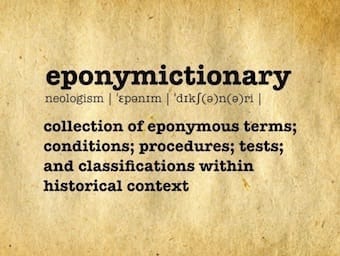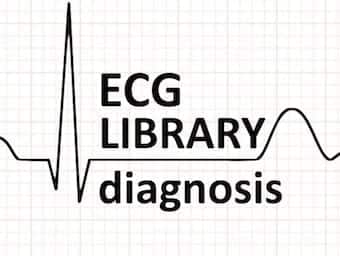
Pendred syndrome
Pendred syndrome: autosomal recessive genetic disorder (chromosome 7q31), characterized by congenital sensorineural deafness and goitre.

Pendred syndrome: autosomal recessive genetic disorder (chromosome 7q31), characterized by congenital sensorineural deafness and goitre.

Vaughan Pendred (1869–1946) was an English GP. Pendred first described the syndrome of bilateral sensorineural hearing loss with goitre (Pendred syndrome)

Time to review the descriptions and eponymythology of the forgotten signs associated with Graves orbitopathy - the signs of Dalrymple, Stellwag, von Graefe, Möbius and Joffroy...
Graves Ophthalmopathy: constellation of findings, apparent in 25-50% of patients with Graves disease. Robert Graves 1835

Graves disease: Autoimmune disease that affects the thyroid. A form of hyperthyroidism manifesting the triad of goitre, exophthalmos and pretibial myxoedema.

Paul Julius Möbius (1853-1907) was a German neurologist specialist in neuroanatomy and neurological disorders. Möbius sign, syndrome, disease

Möbius sign: Diagnostic test in patients with Morbus Basedow (Graves disease) - the inability to maintain ocular convergence in the presence of hyperthyroidism.

ECG features of hypothyroidism (myxoedema) main triad: Bradycardia; Low QRS voltage; Widespread T-wave inversion

Hyperthyroidism and the most common ECG changes seen with thyrotoxicosis including Sinus tachycardia, AF and High left-ventricular voltage